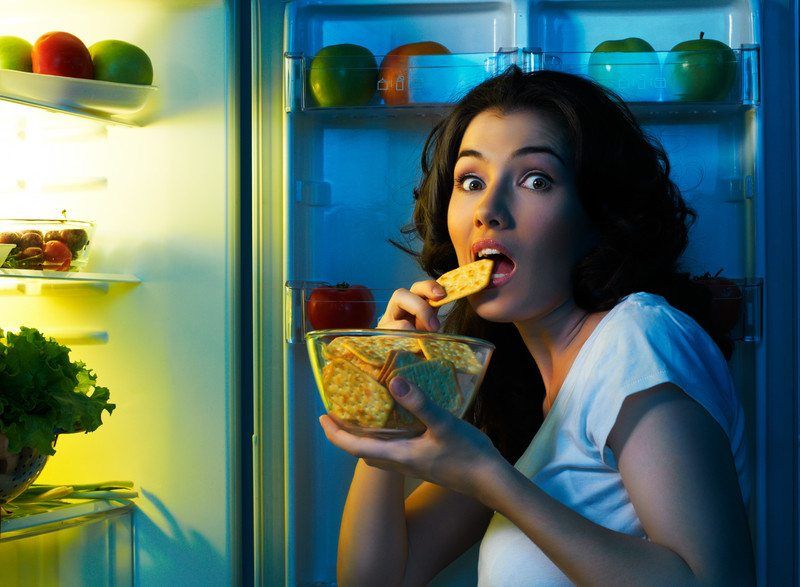
Image from foodfornet.com
We are inundated with methods to lose weight and get into shape. One example is the claim that avoiding eating after 8 PM will help you lose weight or maintain a lower weight. However, this may not necessarily be true.
Overall, the two main dietary aspects to focus on with regard to weight loss are caloric intake and macronutrient distribution. Caloric intake relates to the amount of total calories eaten during the day, and one’s recommended intake depends on factors like activity level and body type. Macronutrient distribution relates to the makeup of calories being eaten during the day. This organizes meals into categories of carbohydrates, fats, and proteins.
Intuitively, it seems like these aspects along with physical activity are the most important factors to effectively lose weight. Why would the timing of the meals matter as long as you eat the correct caloric intake and macronutrient distribution?
Some research suggests there is a circadian clock (24-hour cycle) in adipose tissue, or body fat. The way the body burns fat may change throughout the day. It is postulated that the timing of meals can influence whether the adipose tissue stores fat or mobilizes fat to be burned. Supporters of this concept cite studies finding that late eaters lost significantly less weight than early eaters controlling for calorie intake and activity. There are other possible explanations for the findings. There may be genetic variations in fat metabolism that are associated with late eating or a higher susceptibility to obesity. And there is some evidence that late eaters tend to eat foods with more calories and a lower nutritional value.
When aiming for a healthy weight, the most important principle is limited calorie intake. The importance of other factors, such as timing of an evening meal, are more difficult to sort out.
Garaulet M, Gómez-Abellán P, Alburquerque-Béjar JJ, et al. Timing of food intake predicts weight loss effectiveness. International Journal of Obesity (2005). 2013 Apr;37(4):604-611. DOI: 10.1038/ijo.2012.229. PMID: 23357955; PMCID: PMC3756673.
http://europepmc.org/article/MED/23357955
https://www.weightwatchers.com/us/blog/health/eating-before-bed
